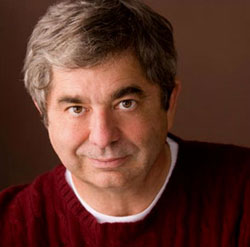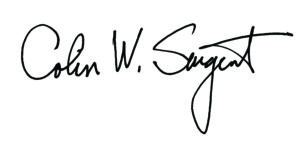February/March 2013
 Who are you going to believe, me or your own eyes? Who knew the baseball that dribbled past Red Sox star Bill Buckner in Game 6 of the ‘86 World Series vs. the Mets was picked up by sweet, shy Charlie Sheen, pre-tiger blood, in 1992 for $93,000? In May 2012, it sold for $418,250.
Who are you going to believe, me or your own eyes? Who knew the baseball that dribbled past Red Sox star Bill Buckner in Game 6 of the ‘86 World Series vs. the Mets was picked up by sweet, shy Charlie Sheen, pre-tiger blood, in 1992 for $93,000? In May 2012, it sold for $418,250.
Maybe you’ve met this ball. It’s mentioned in Good Will Hunting, Fever Pitch, and Celtic Pride. What isn’t mentioned so often is, after the Series, Buckner came to the woods of Maine to lick his wounds, at the Isaac Randall Inn in Freeport. Here’s a moment for a long look in the mirror. Maybe he went to Wolfe’s Neck Woods State Park and watched the gulls drop mussels on the rocks. What would you do? You find yourself and move on.
It’s so ditzy, the way Super Bowl winners say into the TV cameras, “I’m going to Disney World!” Maine’s role as the nadir of this phony effervescence makes our culture darker–Stephen-King dark–and certainly more fascinating when you think of the people who come here to brood.
But, seriously, Groucho Marx? Though time remembers Duck Soup as a triumph for the Marx Bros., audiences of 1933 hated it (ahead of Woody Allen’s loving reference to it in Annie Hall). One New York Times review sniped that far from being intoxicating, Duck Soup employed “the bludgeon…more often than the gimlet.” The whole show was “extremely noisy,” not “nearly as mirthful…” as fans had hoped.
“Groucho needed to lick his wounds,” says film professor Wes Gehring of Ball State University. So he set out for Maine to duck the brickbats and get his groove back.
The Marxes rented a cabin on the shores of Wesserunsett Lake (Room service? Send up a larger room), according to a 1996 story in Yankee by Tom Field. Here, Groucho and son Arthur played tennis, foreshadowing the younger Marx’s brilliant career as one of the greatest tennis stars in the country and a rival of Bobby Riggs.
Can you imagine Groucho staring into the lake between sets, counting fish?
What a surprise for Lakewood Playhouse when, in the dark of summer, Groucho slipped in for a look. Naturally, they snapped him up “to star as Oscar Jaffe in a summer run of Twentieth Century,” Field writes. Missing Manhattan, Groucho “kept tabs on the world via a six-party telephone that…rang just once,” Arthur (later a writer for My Three Sons and All in the Family) recalled to Field, “‘when our landlady called up to say that if our dachshund didn’t stop eating her chickens,’” she’d give their family pet a two-barreled tour of metropolitan Skowhegan with her shotgun.
You bet your life Groucho could have lit her up with a comeback (I never forget a face, but in your case I’d be glad to make an exception). But did he suppress it?
Inspired, he rushed back to Manhattan and shot A Night at the Opera, grossing $3M ($50.4M today). His Maine adventure? Up in smoke.






0 Comments